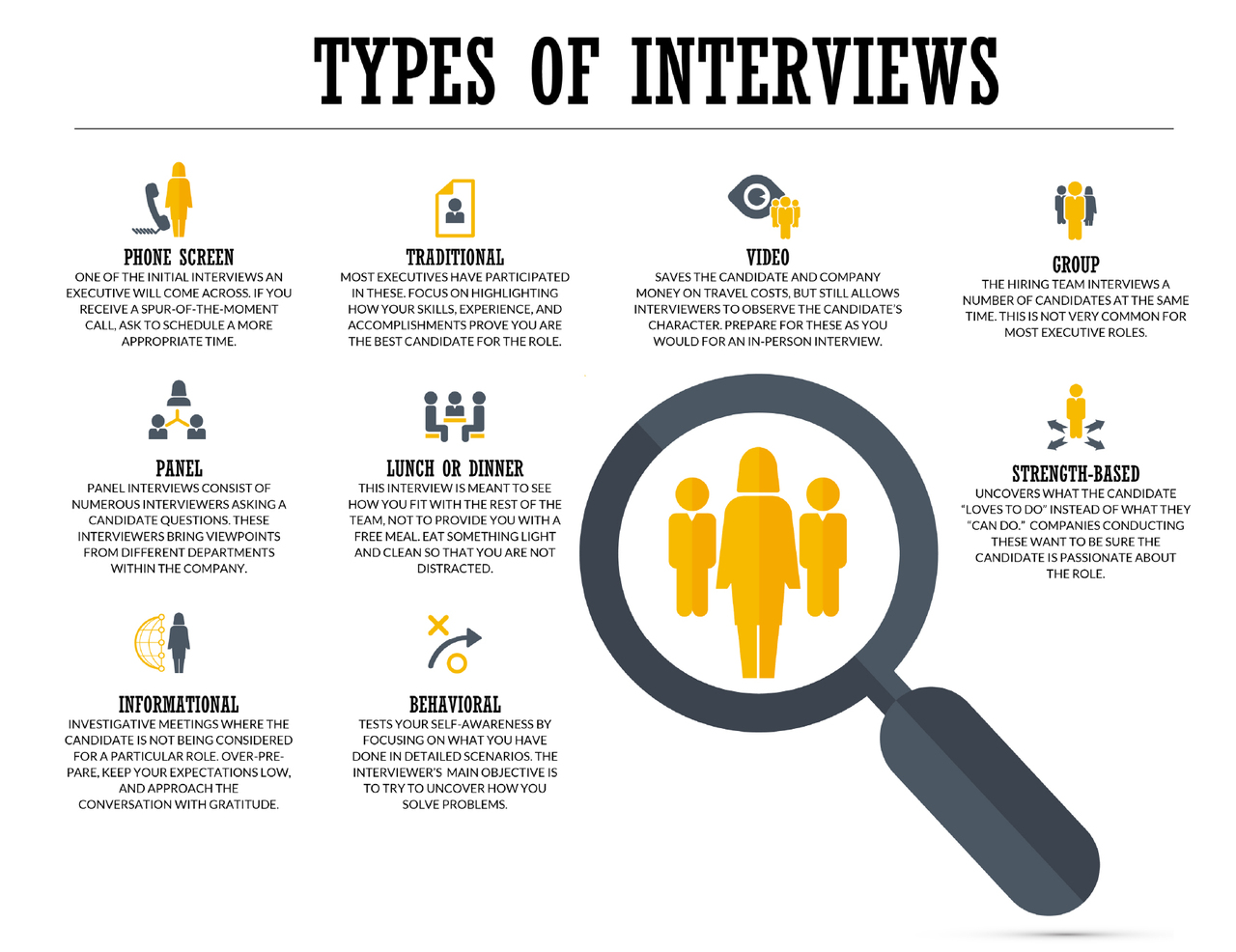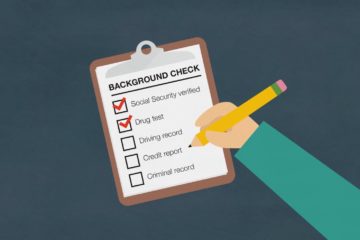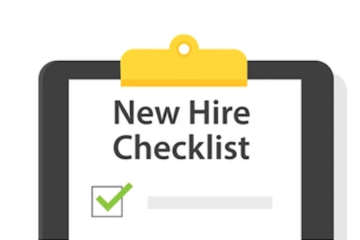Overview
To hire the most qualified candidates, human resource professionals must well inform human resource professionals and hiring managers on how to conduct interviews effectively. Employers must be aware of federal and state prohibitions on asking certain types of questions during employment interviews.
With careful preparation, HR professionals and hiring managers can make the most of employment interviews and obtain the information they need. Interviewing is an essential step in the employee selection process.
If done effectively, the interview enables the employer to determine if an applicant’s skills, experience, and personality meet the job’s requirements. It also helps the employer assess whether an applicant would likely fit in with the corporate culture.
Preparing for an interview can help clarify a position’s responsibilities. The interview process leads to hiring the most suitable candidate, and it can help contain the organization’s long-term turnover costs. Applicants also benefit from an effective interview, as it enables them to determine if their employment needs and interests would likely be met.

Types of Interviewing
In implementing an accurate and fair selection method, the employer can select from a variety of interviewing techniques. The choice depends on considerations such as the nature of the position being filled, the industry, the corporate culture, and the type of information the employer seeks to gain from the applicant. Interviewing techniques can be either structured or unstructured. The primary purpose of structured interviewing is to pinpoint job skills that are essential to the position.
Structured Interview
- The interviewer asks a specific set of questions of all applicants for the particular position.
- This straightforward approach makes it easier for the interviewer to evaluate and compare applicants fairly.
- Some interviewers ask the questions in a predetermined order, while others may not adhere to a strict order but still make certain they address all the planned questions.
- Structured interviewing generally provides the interviewer with the information needed to make the hiring decision.
- It also can be crucial in defending against allegations of discrimination in hiring and selection, because all applicants are asked the same questions.
Unstructured Interview
The interviewer does not have a strict agenda but instead allows the applicant to set the pace of the interview.
Questions tend to be open-ended, which can enable the candidate to disclose more than they might if asked closed-ended questions requiring only a brief answer.
Questions in an unstructured interview can be tailored according to an applicant’s skills and experience levels.
The absence of structure may make it difficult to compare and rank applicants because they are not asked the same set of questions.
Telephone Prescreen Interview
A telephone prescreen interview can be useful for assessing whether an applicant’s qualifications, experience, skills, and salary needs are compatible with the position and the organization.
Telephone interviews are often used to narrow the field of applicants who will be invited for in-person interviews
During the prescreen stage, the interviewer should ask the applicant enough carefully prepared questions to determine whether he or she is, in fact, a viable candidate for the position.
- Assess the applicant’s general communication skills.
- Clarify unclear items on the applicant’s resume.
- Ask about frequent job changes or gaps in employment.
- Have a candidate conversation with the applicant about salary requirements.
Direct one-on-one interview
The traditional face-to-face interview with the candidate can be structured or unstructured, and it can be approached in one of several ways, depending on the types of information the interviewer seeks. The three most common approaches to one-on-one employment interviews are behavioral, competency-based, and situational.
Behavioral and competency-based approaches.
Behavioral and competency-based interviewing both aim to discover how the interviewee performed in specific situations.
The logic is based on the principle that past performance predicts future behavior; how the applicant behaved in the past indicates how he or she will behave in the future.
In the behavioral approach—a traditional technique for assessing a candidate’s suitability for a position—the purpose is to review the candidate’s experience, personal attributes, and job-related skills.
The competency-based approach focuses specifically on skills needed for the position; job-related skills constitute the criteria against which applicants are measured.
In a behavioral or competency-based interview, the interviewer’s questions are designed to determine if the applicant possesses certain attributes or skills.
The interviewer asks the applicant how he or she did, in fact, handle a particular situation in the past. Behavioral and competency-based interview questions tend to be pointed, probing, and specific. Competency-based interviewing can give the interviewer a sense of an applicant’s job performance and attitude toward work.
The situational approach is an interview technique that gives the candidate a hypothetical scenario or event and focuses on his or her past experiences, behaviors, knowledge, skills, and abilities.
Situational Approach
The situational approach is an interview technique that gives the candidate a hypothetical scenario or event and focuses on his or her past experiences, behaviors, knowledge, skills, and abilities by asking the candidate to provide specific examples of how the candidate would respond given the situation described.
Candidate Group Interviews
Candidate group interviews are less common than panel group interviews.
In a candidate group interview, a candidate is in a room with other job applicants who may be applying for the same position.
Each candidate listens to information about the company and the position and may be asked to answer questions or participate in group exercises.
In a candidate group interview, a candidate is in a room with other job applicants who may be applying for the same position.
Each candidate listens to information about the company and the position and may be asked to answer questions or participate in group exercises.
Panel Group Interviews
Panel interviews can be either structured or unstructured.
In a panel group interview, a candidate is interviewed individually by a panel of two or more people.
This type of group interview is usually a question-and-answer session, but a candidate may also be asked to participate in an exercise or test
When organized properly, a panel interview can create a broader picture of the candidate than a one-on-one interview would produce.
Panel interviews can also help less-experienced employees get involved in the hiring process.
The panel should include no more than four or five people; a larger panel could be intimidating and unwieldy.
Preparing For The Interviews
- To help ensure the validity and effectiveness of employment interviews, the interviewer must prepare in advance.
- Determine the critical success factors of the job
- Rank—according to the job specifications—the most important qualities, experiences, education, and characteristics that a successful candidate would possess.
- Make a list of qualities, skills, and types of experience to use to screen resumes and job interview candidates.
- Select specific questions to determine whether an applicant possesses the critical success factors.
- Decide the type of interview process that will be used.
- Review beforehand the job description and the resume of each candidate to be interviewed.
- Schedule a planning meeting with the appropriate attendees, such as co-workers, an indirect but interested manager, or internal customers of the position.
- Determine who will interview the candidates.
- Plan the interview and the follow-up process.
- Decide on the applicant screening questions for the telephone screens.
- Identify the appropriate questions for the post-interview assessment of candidates by each interviewer.
- Interviewers must know how to elicit desired information from job candidates.
- Questions should be designed to show how the candidate has displayed the required skills in specific situations during his or her career.
Conducting The Interview
A successful and effective interview is one in which both the interviewer and the interviewee receive accurate information and can make informed decisions about the applicant’s suitability for the job.
It is normal for an applicant to be nervous, so interviewers should try to put the person at ease from the moment he or she enters the room.
Before commencing with prepared questions, the interviewer could ease tensions by encouraging the applicant to talk about a particular interest—perhaps something on the person’s resume.
At this point, the interviewer might also want to recap the position and what it entails.
Controlling The Interview
For an interview to be as useful as possible in the employment-decision process, the interviewer must maintain complete control over the interview at all times. Establishing and maintaining control requires, in addition to good questioning techniques, effective listening skills.
- The key for the interviewer is to speak as little as possible.
- Minimize internal and external distractions; focus only on what the applicant is saying.
- Listen to the full answer before asking the next question.
- Clarify the candidate’s answers if necessary and ask if more information is needed.
- Occasionally it may be useful for interviewers to restate an applicant’s reply in their own words.
- Watch the interviewee’s facial expressions and body language.
- Set aside a quiet place for the interview.
- Schedule enough time so that the interview will not be rushed.
- Inform the candidate well in advance about the location and time of the interview.
- Greet the candidate with a pleasant smile and a firm handshake. Introduce yourself and anyone else who will be involved in the interview.
- Ask for permission to record the interview or take notes.
- Begin in a manner that provides a comfortable atmosphere for the candidate.
- Outline the interview objectives and structure.
- Try to ask questions that will facilitate discussion.
- Avoid questions requiring only a yes or no answer.
- Keep the questions open-ended so that the applicant has the opportunity to speak freely.
- Ask only job-related questions. Steer clear of personal, private and discriminatory questions.
- Start with easier questions and gradually build to more difficult or searching questions.
- Ask only one question at a time.
- If necessary, repeat the question, but try not to rephrase it
- Do not lead, prompt, interrupt or help the candidate find an answer.
- Avoid facial expressions that could lead to an answer.
- Listen carefully to the candidate’s answers.
- Probe for the applicant’s ability to manage and work in teams.
- Assess whether the candidate would fit with the organization’s culture.
Follow Up Questions
Asking follow-up questions—also called probing—can be necessary when the interviewer does not fully understand a response, when answers are vague or ambiguous, or when the interviewer requires more specific information from the applicant.
Probing questions inviting more detail often begins with “what” or “how.”
Questions inviting personal reflection often begin with “do you” or “are you.”
Questions beginning with “why” may put the respondent on the defensive or result in little useful information and require additional probing.
Reflection Questions
Reflection questions are designed to help the interviewer achieve a deeper understanding of the applicant’s responses.
Such questions rarely evoke defensiveness; applicants want the interviewer to understand their responses
Demonstrate to the applicant that his or her responses are understood.
Rephrase the applicant’s response in clearer or more articulate language.
Let the applicant know the interviewer is paying attention.
Provide the applicant with an additional opportunity to elaborate on his or her responses.
Closing The Interview
A popular method of closing the interview is to say the interview is ending and to offer the candidate the opportunity to ask questions. This will enable the candidate to gain clarification on aspects of the position and on employment conditions such as hours, salary, and benefits.
- The interviewer should answer the candidate’s questions as frankly as possible.
- Interviewers should be prepared to provide documents describing the company and its benefits.
- Demonstrate to the applicant that his or her responses are understood.
- Rephrase the applicant’s response in clearer or more articulate language.
- Let the applicant know the interviewer is paying attention.
- Provide the applicant with an additional opportunity to elaborate on his or her responses.
- Ask if the candidate is interested in the job based on the information provided during the interview.
- Ask about availability.
- Ask for a list of people who can be contacted for references.
- Explain the time frame for the rest of the interviews, the subsequent steps in the process, and when a decision is likely to be made.
- Explain how to get in touch with the interviewer and when to expect to hear from him or her.
- Walk the candidate to the door and thank the person for the interview.


